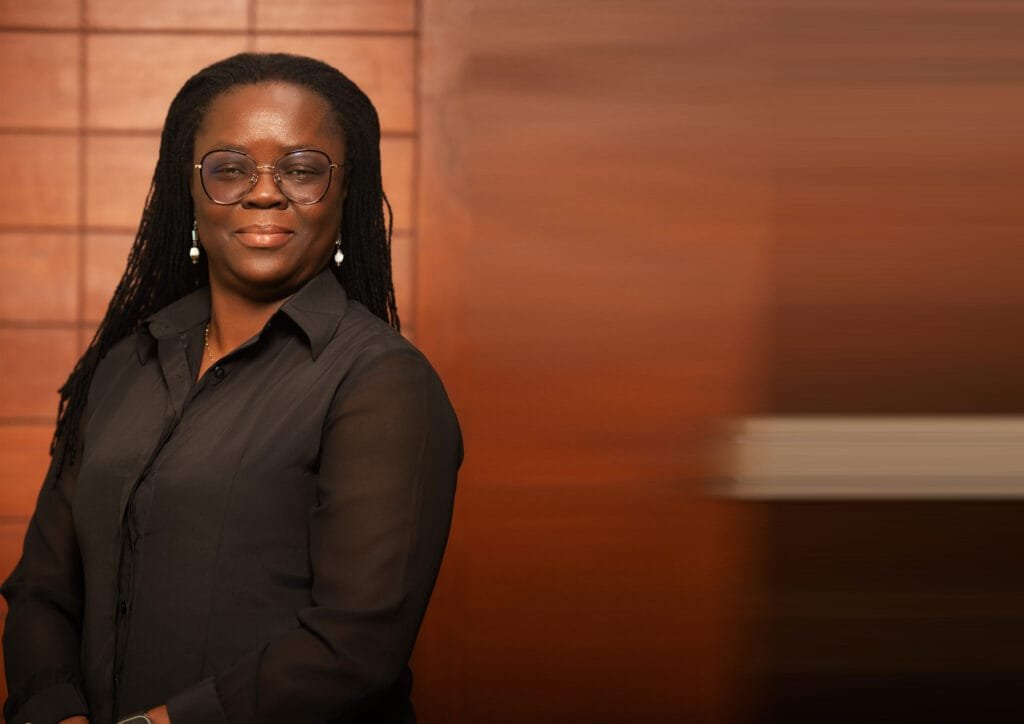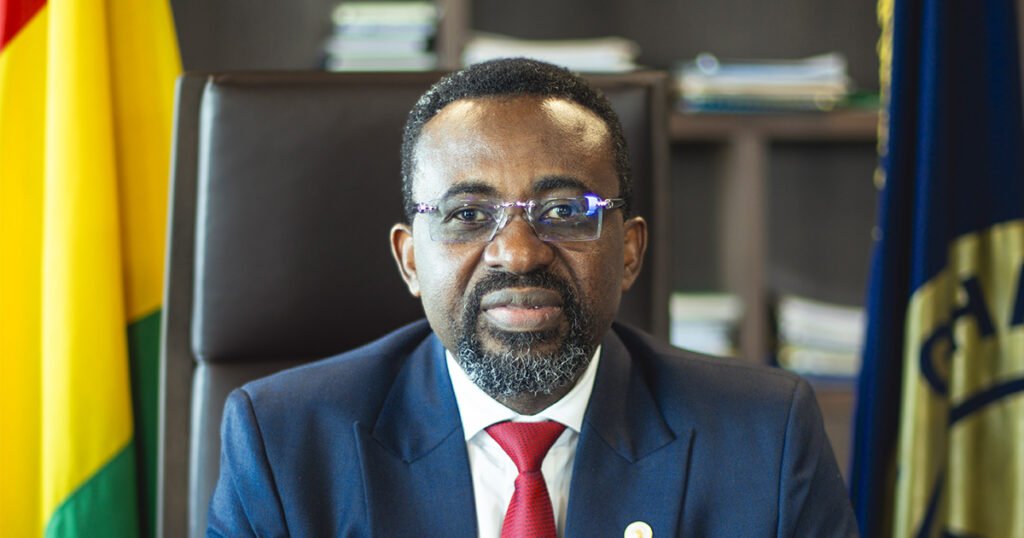“THE UNDERLYING PRINCIPLE IN MY BUSINESS LIFE IS ONE WORD: INTEGRITY! TO SUCCEED IN BUSINESS, YOU NEED INTEGRITY,”
reveals Hon. Dr. Nii Kotei Dzani, one of Ghana’s leading and successful entrepreneurs and a member of Council of State in the Republic of Ghana. A man who upholds great reverence for God in all facets, he recounts the story of his life in an enthralling interview with The Vaultz.
GHANA’S ECONOMY @60
TVM: Ghana is 60 years. What’s your general assessment of the economy?
NKD: At 60, we have indeed come far as a nation. A nation that does not acknowledge its struggles will not appreciate its achievements. First and foremost, we have a lot to be thankful for. God has been faithful to us as a country. The foremost reason to celebrate this anniversary, it should be because of the PEACE we are enjoying as a nation.
Despite the prevailing peace and tranquility, I think we could have been better, economically. Our economy at 60 years can be easily compared to a 20 year old natural resource deprived nation looking to strategize without any resource to fall on. Despite the decades of digging the earth and the seas for gold, cocoa, bauxite, diamond and oil, we have been unable to improve lives appreciably- our education, health and agricultural systems can best be described as stagnated.
But I have hope. Hope in the sense that things will change for the better. As an optimist, even though I cringe at where we are now when compared to other countries with whom we attained political independence, I am a believer that everything will fall into place at the right time for our dear mother Ghana.
TVM: At 60, If you are to rate the economy, how would you score its performance and why?
NKD: I cannot rate the economy. I am not in a position to score its performance.
TVM: Can we, as a nation, claim to have achieved a Ghanaian owned economy after 60 years of independence? If not, how can we achieve a Ghanaian owned economy going forward?
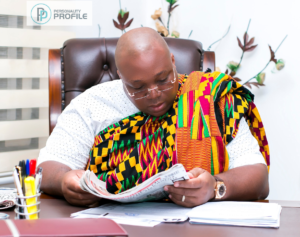 NKD: No! Not at any point or anywhere or any sector in this country can we claim to have achieved a Ghanaian owned economy after 60 years of independence.
NKD: No! Not at any point or anywhere or any sector in this country can we claim to have achieved a Ghanaian owned economy after 60 years of independence.
I am an entrepreneur with varying interests in finance, oil and gas, trade, media, and several others. Let us take banking as an example. Of the 35 banks and counting in this country, half of that number are foreign. What is more worrying is that the local players are mostly tier three and four banks: very small banks that control a minority share of the market. More than 60percent of the banking market share are in the hands of foreigners.
Let’s not talk of mining, oil and gas, and even retail trade, where by law, foreigners are not supposed to operate in. Our markets are being taken over by foreigners who import cheaper products with capital borrowed at cheaper rates from their originating countries. The six telecom companies in the country are all foreign owned: not even a single one is majority owned by the government or any local institution or individual.
Clearly, wehavefailed! Thisfailureisasaresult of a lack of direction in terms of government policy. This has led to individuals, businesses and even sometimes government itself sponsoring foreigners to compete with our locals. So, until government desists from such acts, our economy will continue to be in the hands of foreigners.
We have a local content law that can easily be tossed out of the window for political and personal gain. For me, until we support indigenous businesses to compete effectively with the foreign counterparts and above all go beyond the shores of the country to compete with other businesses and bring in the profit, the economy has no future. When the trend is reversed then we can be confident of achieving a Ghanaian- owned economy.
TVM: “Our economic transformation as a country is more certain than before” you professed. How certain is this compared to previous economic transformation agenda embarked upon by previous governments?
NKD: I strongly believe that our economic transformation is more certain than ever. Like I said earlier, I am an optimistic entrepreneur. Traveling the length and breadth of this country ignites a sense of hope- hope in the youth who are seeing things differently and they are the ones I am referring to, not government policies. These are young, passionate and energetic men and women ready to tackle the challenge of economic transformation. That’s what I’m referring to.
TVM: What pragmatic steps would you suggest the government should take to reduce the country’s debt stock?
NKD: One thing we are missing out on the subject of debt is the perception that debt is the worst thing that can happen to an economy. That is wrong, absolutely wrong. Debt is good, only if you use it wisely. I was privileged to engage the Finance Minister and he did reveal some strategic measures he is deploying to reduce the debt stock. But one critical factor to note is that, reducing the debt stock cannot happen out of thin air. Debt reduction must go hand in hand with increased local productivity.
We need to understand that these debts are cumulative whereby each and every day, they are accruing interests. Continuous borrowing to service the debt, whether long term borrowing to reduce short term debt, still amounts to debt. But, if we are able to increase our productivity as a nation, we can indeed go a long way to reducing the debt stock in a short while.
What is causing government to borrow? Lack of revenues, i.e., taxes, duties, levies, and income from interest in institutions forces government to borrow to bridge the gap. It is that simple.
An increase in productivity across all sectors will see more revenue accrue to government, thereby reducing its dependence on debt. For example, if State Owned Enterprises (SOEs) are functional and generate substantial revenue government will earn enough income from the profits they make. Secondly, if state institutions effect their services as expected then things will be better. Furthermore, some of these SOEs, I suggest, should be made independent. This means that these institutions, though fully owned by the government, do not have to rely on government to pay salaries of their workers, as well as administrative and operational expenses. This is a drain on scarce national resources. It also stifles development and undermines prudent government spending. Imagine how much government can save if all state enterprises that can be autonomous are made so and empowered with the right business models so they even pay dividends to government.
Consider institutions like the Forestry Commission, Electricity Company of Ghana (ECG), Volta River Authority (VRA) and Ghana Water Company. They depend on the government for payment of salaries of workers. No, that should not be encouraged. They should be able to generate their own revenue and make profit in order to pay dividend to government. The Ghana National Petroleum Corporation is a leading example; it borrows on its own balance sheet to undertake projects. That is where we should be heading as a nation.
Another subject that needs to be looked at when borrowing is utilizing the money borrowed in such a way that it works to pay back that loan. For example, if you borrow money and use it in the construction of a road, that road must lead to increased productivity and bring valuable returns to the economy, so that with an increased activity on that road, the revenue can be used to out rightly pay off the debt.
So, there are various means we can employ to reduce our debt stock but that notwithstanding, I have confidence in the Finance Minister and his ministry to salvage the situation.
TVM: Carl Pope, the co-author of “Climate of Hope” in an interview on CNN said “we don’t plan an economy around presidential campaign but in 20 to 30 years”. Ghana, under the previous government sought to implement such an act by implementing a 40-year developmental plan and this government is seeking to implement its own. Beyond the rhetoric, how can the nation achieve such act without partisan politics infiltrating?
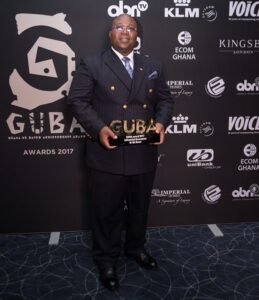 NKD: This is simple and straight to the point. Unfortunately, we tend to see things differently in our side of the world. To speak to subjects of national development, one must look, think and speak through the lens of politics. The politicization of every subject, person or idea is what has stagnated, and sometime retrogressed development.
NKD: This is simple and straight to the point. Unfortunately, we tend to see things differently in our side of the world. To speak to subjects of national development, one must look, think and speak through the lens of politics. The politicization of every subject, person or idea is what has stagnated, and sometime retrogressed development.
Despite the gradual change in approach by some young and energetic men and women, we are still at a stage where only an abrupt and radical change can change our attitude to development. There can never be any issue in this country without it being partisan twist either NDC or NPP. This is rather so unfortunate. It’s a very dicey situation but for those of us who believe in God, we know God will show us the way out of this conundrum.
TVM: After 60 years of independence, how can the nation shift from just mere economic policy formulation to productivity?
NKD: It is difficult for people to speak to issues and policies from government due to the fear of political party tagging. When you think you are contributing objectively to a discourse, others are busy tagging you to a particular political party. So this makes it difficult for well-meaning thinkers in the country to comment on government policies.
We should consider issues of national concern holistically and not on the lines of partisan politics. The merits and demerits of issues should be looked at objectively
without being biased. When this is done, government policies will be carefully analyzed holistically and when a consensual framework is created the whole nation will rally around to expedite its implementation.
There are general issues which everyone can contribute to such as the tax regime, which we keep saying is not good, government not supporting indigenous businesses to thrive etc. But for specific government policies, people abstain from them in order not to be labeled as a party loyalist.
I prefer to be a patriot and that’s what I am. I prefer to talk about issues I think will promote national consensus rather than issues that tend to divide us on party lines. I’m inclined to believe that this country will be great if we become honest with ourselves and not read politics into every move.
TVM: You asserted “Ghana has suddenly become a nation of talkers. We pay lip-service to challenges bedeviling the economy instead of adopting rigorous measures to put our economy on a sound footing”. What in your view can be done to reverse this situation of talkers to doers?
NKD: I do my part and you do your part!
Entrepreneurship and Job Creation in Ghana
TVM: You are one of Africa’s ‘fast-rising entrepreneurs’ who is breaking new grounds in the various sectors of the economy in Ghana. How would you describe the country’s overall business enclave?
NKD: The local economy is bedeviled with countless challenges; but these are challenges that can easily be resolved with a resolute government in charge. The primary goal of transforming this nation dictates that we should not deviate from getting the economic fundamentals right. It is not easy to do business in this country. We live in a country that foreigners are sponsored by government to compete to do business with indigenes. That’s sad!
One of the most difficult things to do in this country is doing business as a Ghanaian. But the businessmen and entrepreneurs in the country have done so well to have risen up to the challenge. We are hard at work to position ourselves to compete with any business concerns anywhere in the world.
To recount why we are in this mess, Ghana, after independence, didn’t have Ghanaians with the capacity to establish businesses to support the government from the private sector. So government had to open its doors to foreigners and this is done in every country. So, the foreigners came in and took over all the major sectors of the economy.
From telecoms to the mines, the banking sector, and the oil and gas, we didn’t have Ghanaians at the top realm of businesses. But when Ghanaians started establishing such businesses, it became evident that it’s extremely difficult to compete with the foreign counterparts because they were and are still government sponsored. These foreign counterparts receive two aspects of sponsorship– one from their country of origin and the other from the government of Ghana.
The one from the Ghanaian government was meant to attract them to invest, meanwhile, the government was not offering the same support to growing local business and leaders. This made it and still makes it extremely difficult for Ghanaian businesses to compete with their foreign counterparts.
Until the late 1980s that government realized the trend and started moves to reverse it, this was the hard realities of the economy of Ghana. Despite several moves to undo this trend, it is becoming increasingly difficult in an ever increasing global world to just take a drastic step to reverse the trend. What we need as a country is bold and courageous leadership to reversing the trend. If not, our economy has no future.
TVM: You are currently adjudged the “Overall Best Entrepreneur of the Year 2016” for your exceptional contributions towards the country’s socio-economic development. Considering your experience, how can the nation breed successful entrepreneurs who would contribute to the country’s socio- economic development as well?
 NKD: This country only needs good economic fundamentals and a strong economic base. Entrepreneurship is talent! This is a God- given talent and so people have to take advantage of it. But if the environment doesn’t support it, you cannot do much. So, what we should do as a country is to create the enabling environment so that people, either technocrats, academics or sports men and women will be able to unearth their God-given talents. That’s all that’s needed from government.
NKD: This country only needs good economic fundamentals and a strong economic base. Entrepreneurship is talent! This is a God- given talent and so people have to take advantage of it. But if the environment doesn’t support it, you cannot do much. So, what we should do as a country is to create the enabling environment so that people, either technocrats, academics or sports men and women will be able to unearth their God-given talents. That’s all that’s needed from government.
TVM: You averred you began your entrepreneurial journey with an amount of GHc 27, 000 and currently accrued it into an asset of almost GHc1billion. But you also stated “You don’t need capital to start a business. What you need is integrity”. How do you align these two statements?
NKD: Saying that I started my business with so little capital is very true. So does everyone start their businesses. No one start with GHc100million. Even the current President of the United States, Donald Trump did not start with a billion dollars, not to talk about the Bill Gates and Warren Buffets.
When I first said this most listeners misconstrued it but I still stand by it that “you don’t need capital to start business but integrity”. What it simply means is that no matter how much capital you have, if you lack simple integrity, your capital can’t make you succeed. Of course, everyone needs money to start business because it doesn’t make sense to start business on an empty pocket.
But with the minimum capital, coupled with integrity and the grace of God, you will succeed. I started my business at the same time with some friends and colleagues who had huge sums of monies as start-up capital but today, their businesses are not even up to 1 or 2percent of my business. This may be because they failed to exercise and exhibit any integrity in their business dispensation. Through your integrity, you are able to prove to your customers, investors and other stakeholders, who later help build your business because of your integrity.
That assertion was to disabuse a perception that without huge capital, you cannot start business. So, what I meant was one does not need a huge capital to start business but with a little capital and integrity, one will succeed and not that one can start a business with no money at all. Capital itself can never translate into successful business; never!
TVM: The new government, as part of its campaign message, assured Ghanaians the establishment of one district, one factory. Is the establishment of this one district, one factory a sustainable agenda considering past experiences such as Komenda Sugar factory, etc.?
NKD: Every government has a vision and this particular one is to expand our economic base. This is a matter of truth and it must be done. Whether it is done rightly or wrongly, posterity will determine. When such an ideology is implemented the economic base becomes broadened to curb the high urban migration from the rural settlements.
Through this initiative, jobs will be taken to the door steps of the people and so they don’t need to come and over populate the urban settlements. Our urban areas are growing at such an alarming rate. Current studies show that the urban and rural population, which used to tilt in favor of rural areas, is now getting even. By 2030, it is estimated that there will be more people in urban areas than rural areas. Do not forget that the more people flock to the urban areas, the more there is pressure on facilities such as roads, electricity and water.
The one district, one factory model is a good initiative and it’s up to every Ghanaian to take advantage of this government policy and be able to improve their lives. If a factory in a district can employ a 100 people, with each one of them having a wife and three children, that will be 500 people kept away from an already-choked urban area.
 Personality Profile
Personality Profile
TVM: There have been a lot of blabs as to who Dr. Nii Kotei Dzani is. How would you describe yourself?
NKD: I am Nii Kotei Dzani as you rightly said. I don’t see myself as a businessman but as an entrepreneur and an economist. I must state that there’s a clear difference between who an entrepreneur is and who a businessman is. Everyone can call himself an entrepreneur and a businessman as well but there’s a clear difference between the two. I see myself as an entrepreneur and not a businessman.
TVM: Why do you see yourself as that?
NKD: Take a tuber of cassava. A businessman will buy it for a cedi and sell it to you for a cedi and a half or two cedis, make money and walk away. But an entrepreneur will ask him or herself, what do I do with this cassava to not just make money but impact society in diverse ways? He or she takes that cassava, does a little research and proceeds to process it into gari, cassava chips, or any other product in order to derive more value. Do not forget that while he or she is processing it, he or she has to seek the help of others, thereby creating jobs in the process.
Entrepreneurs, therefore,are not necessarily profit minded people but create opportunities and businesses. Entrepreneurs actually create businesses for businessmen and women. Entrepreneurs are more interested in expanding growth, creating jobs, improving lives and transforming societies while a businessman is more interested in the returns on his/ her investments.
TVM: So, did you always aspire to be an entrepreneur?
NKD: I think that the Lord directs our path and guides our steps. At every point in time in life, God directs you on what you should do and what you shouldn’t do. For instance, I wanted to be a footballer but… I believe God directed my path and planted me where I find myself today.
TVM: How was growing up as a child like? Do you think your growing up and the training you had contributed to what you are today?
NKD: I come from a very humble background and I never had the opportunity to be brought up by my father. I lost my father when I was just 10 years old. My mother was also not staying with us. I stayed with my late aunt who was close to 70years at the time. I think my whole life is a mystery. I think God in His own wisdom directs my path and I meet the right people at the right time and all those people contribute significantly to what I am.
TVM: Your success in business has been evident through the multiples of businesses established. What enduring principle(s) guide you in all facets of your business life?
NKD: The underlying principle in my business life is one word: integrity. To succeed in business, you need integrity. To earn integrity, you have to work it out. You have to purge yourself because every human has a negative side in him or her so the need to purge oneself. You need to identify your strengths and weaknesses and fear God because once you have the fear of God all other things follow.
For instance, on one occasion, during my usual audit of the books, I realized that we overcharged a particular client to the tune of GHc36, 000, even though he had finished paying the facility more than six year ago. It was direction from the Holy Spirit and we tried all means to locate the client and offered him his money with interest to the tune of GHc50, 000.00.
This act surprised the client so much that today he is one of our biggest clients and a prominent ambassador to the firm, bringing other clients on board. Integrity is important but that move is done through the fear of God. For God gives riches and adds no sorrow to them.
When you love your staff and your customers, you’ll do the right thing. I think that these are the basic principles in business and then the rest will add up. I don’t believe, with all humility, that your knowledge alone can take you far in business. This is because there are thousands of people out there who are more knowledgeable than you. Your staff, majority of them are more knowledgeable than you are. It is just a thin line that separates you from them– the grace of God.
TVM: What is your business management philosophy and motivation?
NKD: My motivation is seeing thousands of peoples’ lives being impacted positively. There are times I wake up in the morning and it’s difficult to go out because I am exhausted or worn out. Suddenly, I remember that there’s someone out there who is looking up to me for his or her life to be impacted and that gives me the energy to forge ahead. My philosophy is: I do my bit and God does the rest!
TVM: How will you describe your leadership style?
NKD: I have an open door policy. I do a lot of consultations. I want to emphasize that I was quite an autocratic leader. I always wanted things to be done my way. But I realized that I cannot succeed with that. So, I employ broad consultation before making a decision and this aids my decision making. At Groupe Ideal, there are no classes of employees; from the security to the Groupe President, we are all the same and we respect one another.
I make them understand that everyone is important. It’s rather unfortunate in this life that the most important people in society earn less than those at the top. That is divine formula and there’s nothing I can do about it neither can anyone else.
TVM: What do you do in your leisure time?
NKD: Well, I don’t have enough leisure time for now but hope to create some in the near future. But, the slightest time available, I try to spend with my family; both nuclear and extended. I love spending time with my children even though I feel guilty I don’t spend enough time with them. Also, I attend to a lot of visitors at the slightest time available outside of work schedule to address the needs of people and I use this to comfort myself.
TVM: What sporting activities or hobbies do you love most and engage in?
NKD: I love jet skiing. I love cruising with my speed boat. I love driving at top speed and I enjoy it a lot as a hobby.
TVM: What kinds of movies and books do you watch and read respectively?
NKD: I like to watch documentaries when it comes to motion pictures. I enjoy reading autobiographies of successful personalities. I also like the Pan African writers a lot, but above all, I also read the Bible every day. There are two things I do every night before I go to bed: I read the Bible and I listen to a Pan African fighter’s speech.
TVM: Is there any particular book(s) that has significantly influenced your life?
NKD: The Bible is the most influential book in my life. When you read the Bible you get the solution to everything in this life. It is the book of all wisdom and knowledge. I will encourage everyone to read the Bible.
TVM: What genre of music do you listen to?
NKD: I love classical music.
TVM: You are a car enthusiast and have acquired fleet of them. Which is your most favorite and why?
NKD: Well, Hyundai i30 is my favorite car. I love that car.
TVM: What kind of a husband/ father are you?
NKD: This question should rather be directed to my wife but what I can say is I do my part as a husband and God does the rest. For my children, they appreciate the little time I spend with them. They look up to me as a leader. They appreciate my efforts a lot and that puts a lot of smiles on their faces and urges me to spend more time with them.
TVM: Due to your wealth of experience in life and business, do you intend to document it in a book (autobiography / biography) to benefit the younger generations?
NKD: Yes. I am currently working on that and hope to launch it soon. May be that’s what is influencing my consumption of autobiographies from which I gain a lot of knowledge.
TVM: If you had the opportunity to rewrite a wrong. What would it be?
NKD: Well, there is one or two of them that I’ll want to keep confidential. Perhaps, joining my colleagues to take the Cape Coast University to court when I was a student is something I wish I could rewrite. I think I was the first person to take the university to court and challenged authorities and that’s something if I had an opportunity, I’ll rewrite. But why I wish I could rewrite this is very personal.
TVM: What should Ghanaians be looking forward to next from your table?
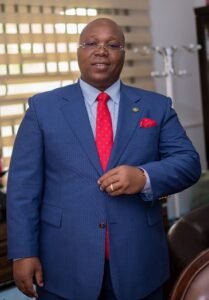 NKD: Each and every day of my life I do my best and God does the rest. For now, I don’t know what God has in stock for me. My whole life is directed by God. I have never planned anything for my life. So, if God calls me for another service tomorrow; Why Not! I don’t have any plan for anything.
NKD: Each and every day of my life I do my best and God does the rest. For now, I don’t know what God has in stock for me. My whole life is directed by God. I have never planned anything for my life. So, if God calls me for another service tomorrow; Why Not! I don’t have any plan for anything.
TVM: How’s a day in your life like?
NKD: I wake in the morning, read the Bible and then pray to God. Then I dress and move out to the office to work and then come back home and receive visitors and then read the Bible again before I retire to bed.
TVM: You’ve received numerous awards this year. What significance do these awards portray to you?
NKD: It humbles me! When people and organizations are recognizing you, you need to respect them and accept their recognitions. But, this does not excite me at all. This portrays to me that a lot of expectations are demanded from me so I can’t afford to fail and disappoint them. It is rather a very highly uncomfortable situation one can find himself/ herself. But, notwithstanding, we depend on God for His unfailing love and protection.
TVM: Do you have any intention of running for presidency in the Republic of Ghana in the near future?
NKD: Recall I said initially that my whole life is a mystery and that there has never been any point in time I have decided on what I want to do. At every point in time God directs my path and gives me the opportunity to serve or to do something. For now, I don’t know what God will give to me to do tomorrow or next. Of course, if God wants me to be the next president of Ghana, why not! I will thank Him and embrace
it with all my heart but I have no intentions for now. To be honest with you, I have no such intentions. But wherever God wants me to serve, if even as the governor of the Bank of Ghana, why not! For me, it’s not about ambition. It is about doing what is right, touching lives and transforming society.
TVM: In all your submission, you exhibited a great reverence for God. What accounts for this demonstrative attitude you’ve portrayed?
NKD: I mentioned earlier that my whole life is full of mysteries. It was only by God’s grace that I experienced a second cycle education. Then proceeded to the university on that same grace before graduating and started working with Barclays Bank Ghana Ltd. My journey in life to date has witnessed God’s involvement in all stages including meeting and marrying my wife, so why will I not hold God in high esteem. This is my tale as Paul clearly accounts in the Bible; “For to me, to live is Christ and to die is gain” – Phil 1:21.
TVM: What advice would you give to the following?
- The Government
NKD: As a member of Council of State, my advice to government is private and not public and so when the need be I’ll effect as expected.
- Businesses
NKD: Businesses need to be focused. If you want to succeed in business, then you need to be focused and not be distracted. They must have God at the center of their lives. Once they have God, they’ll have integrity.
- Aspiring entrepreneurs& youths
NKD: The principles of the businesses are simply applicable to them.




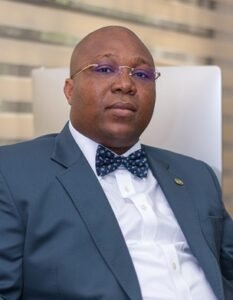 Personality Profile
Personality Profile


